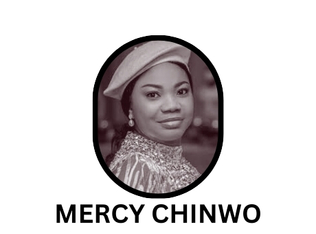
Sir Abubakar Tafawa Balewa was a Nigerian politician who served as the first and only prime minister of Nigeria upon independence.
Born in December 1912, in the Northern Nigeria Protectorate (modern-day Bauchi State), Balewa began his education at a Qur’anic school in Bauchi and later attended Bauchi Provincial School.
He studied at Barewa College, then known as Katsina College, where he was student number 145. Balewa took his name from two corrupted Fula language words: “Tafari” (Rock) and “Baleri” (Black), which resulted in being the childhood nickname “Black Rock”.
Balewa completed his five-year education in 1933 and returned to Bauchi to teach at Bauchi Middle School.
He rose to become a senior schoolmaster and was nominated as the new headmaster in 1941.
In 1944, Balewa and other educated teachers in the Northern Provinces were chosen to study abroad at the University of London’s Institute of Education, which today forms part of University College London.
Upon returning to Nigeria, he became an Inspector of Schools for the colonial administration and later entered politics.
Balewa was elected in 1946 to the Northern House of Assembly and to the Legislative Council in 1947. As a legislator, he was a vocal advocate of the rights of Northern Nigeria.
He supported hesitance by the North to become independent, based on the objection that the north and south regions were not on an equal footing. In the Northern Assembly, he sought more roles and responsibility in the Native Administration for the educated members of the emirates.
Together with Alhaji Sir Ahmadu Bello, they proposed the transformation of the cultural organization, Jam’iyyar Mutanen Arewa, which means Northern People’s Congress (NPC) in English, to become a political platform for use as campaign platform during the elections of 1951.
Balewa was elected vice president of the new party and subsequently resigned his post as headmaster of Bauchi Middle School. NPC won the plurality of votes to the regional House of Assembly in 1951.
In 1952, Balewa entered the government as Minister of Works and later served as Minister of Transport during a time Nigeria was moving towards self-government. During his tenure at the transport ministry, both the Marine and Railway departments were transformed to corporations, and designs for a bridge over the Niger and plans for the Kainji Dam were developed.
In 1957, NPC won the plurality of votes in the Federal House of Representatives, and Balewa became the Chief Minister and designated Prime Minister.
As part of his plans to unify the country towards the move for independence in 1960, he formed a coalition government between the NPC and the National Council of Nigeria and the Cameroons (NCNC), led by Nnamdi Azikiwe.
The 1957 cabinet was constituted as an all-party cabinet, with Ayo Rosiji and Samuel Akintola nominated by the party.
Balewa retained the post as Prime Minister of Nigeria when Nigeria gained independence in 1960 and was reelected in 1964. He announced independence in a motion to Parliament on 18 January 1959, stating that Nigeria would request Her Majesty’s Government in the United Kingdom to introduce legislation in the Parliament of the United Kingdom providing for the establishment of the Federation of Nigeria on October 1, 1960 as an Independent Sovereign State.
Balewa, a modest and self-effacing politician, owned a house in Bauchi and a 50-acre farm near Tafawa Balewa village.
He vacationed on the farm and made many official decisions while in office.
He was married to four women and had nineteen children.
He, along with many other leaders, was overthrown and murdered in a military coup on 15 January 1966. He was buried in Tafawa Balewa’s tomb in Bauchi.
Reference Source: Wikipedia

